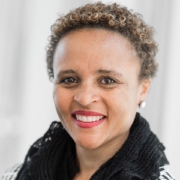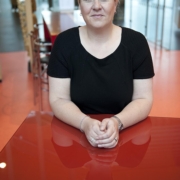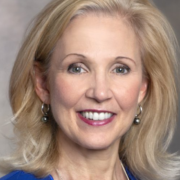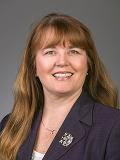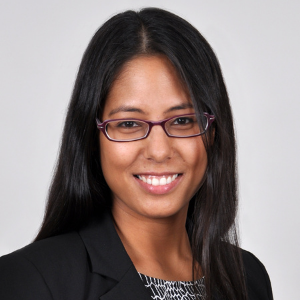Voice of Experience: Kristi Mitchem, Chief Executive Officer and Head of Wells Fargo Asset Management
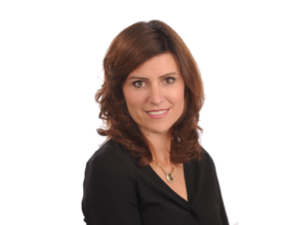 Wells Fargo’s Kristi Mitchem believes that women need to visibly support one another. Where a man might readily high five another man for something unremarkable, research shows that women can be more reserved in their praise. Women are naturally aligned with other women and as such, Mitchem stresses the importance of consciously and vocally “friending” one another in corporate settings. “I tell women not to come out of a meeting without commending another woman. You want her to know that it’s important that she shared her opinion,” Mitchem says. “You also want the men in the room to recognize that she has value to add. “
Wells Fargo’s Kristi Mitchem believes that women need to visibly support one another. Where a man might readily high five another man for something unremarkable, research shows that women can be more reserved in their praise. Women are naturally aligned with other women and as such, Mitchem stresses the importance of consciously and vocally “friending” one another in corporate settings. “I tell women not to come out of a meeting without commending another woman. You want her to know that it’s important that she shared her opinion,” Mitchem says. “You also want the men in the room to recognize that she has value to add. “
Erasing gender inequality is an issue that Mitchem is passionate about—particularly in Corporate America, where she’s spent her career. “If you’re a young woman coming into finance today, you don’t see a lot of successful women in elevated positions. We need to have women visible in high-level positions so young women can see what’s possible.”
As it relates to advice she gives others, Mitchem cites strong communication skills as an imperative for success. “I consistently see women who could improve their skills in the area of presence and would benefit from seeking guidance on how to talk persuasively and powerfully,” she says. “One of the most wonderful things I have realized is that it is a learned behavior that you can enhance over time.”
Weaving Her Way Around a Successful Career
Mitchem was a Fulbright Fellow in Costa Rica, and her study there ignited her interest in Latin America and her desire to flex her language muscles. One of her first positions was with CS First Boston in the firm’s Latin America Finance Group, where she split her time between New York and Mexico City, working primarily on finance assignments. After completing the analyst program, she went on to earn an M.B.A. from Stanford University and completed a summer program with Goldman Sachs, where she accepted a full-time position in the emerging markets fixed income group as a sales trader in New York City.
As her career took off, love intervened. Mitchem became engaged to someone she’d met at Stanford who was starting his own company, and given the geographic realities, she took a position on the west coast, moving from sales trading in emerging markets to equity derivatives.
It was an auspicious time given the rise of tech hedge funds coinciding with the greater predominance of index fund management, and being part of that rapidly growing business allowed Mitchem to make a name for herself. At Goldman, she was selected for a program within the firm that identified high-profile candidates and gave them specific support needed to move forward in their careers. Mitchem credits this program with helping her achieve the designation of managing director.
As Mitchem was ready to take her next career leap, family again interceded. Pregnant with her third child, she decided she needed to move away from working market hours and perennially waking up at 3:30 a.m., which can take a toll. So while she wasn’t looking to leave Goldman, per se, she knew she needed a schedule that was more sustainable.
She joined one of her chief clients, Barclays Global Investors (BGI), helping them turn around their transition management business.
“I brought in great talent, and we were cooking with gas within a year,” Mitchem says. “One of the things that defines me is that I have a lot of energy and like to move on when something is complete, and the talent is there to support it. My next thought is always ‘What’s next?’”
Her CEO asked her to take on something completely different, leading an initiative around the defined contribution (DC) market in the United States where she says she had the amazing opportunity to build a team from scratch and capitalize on this growing segment of the marketplace.
When BlackRock bought BGI, she decided it was time to move on so she joined State Street Global Advisors (SSGA) to help them grow their DC business. She was subsequently asked to take on various new roles and ended up managing all of the Americas institutional business.
While at SSGA, Mitchem achieved one of the professional accomplishments that she is most proud of, which is an intersection between a personal passion and professional opportunity. That came in the form of an ETF launched in 2016 that invested in companies in the Russell 1000 committed to making progress in terms of gender representation at the most senior levels of management. “We were putting capital behind the companies that were making a difference on gender equality, which is a true win-win — investing in something that will have a positive expected return and also aids in the achievement of gender parity,” Mitchem noted.
In June 2016, she began her new position as CEO of Wells Fargo Asset Management which she calls a “fascinating assignment and an incredible opportunity to deliver value to clients through a large organization with so much reach.”
One of the most interesting and challenging trends she is addressing is the money moving out of active management, as well as the changing regulatory environment. “Now more than any time in my career I feel I’m at the point where I can play a key role in helping an organization pivot, as we build expertise in multi-asset strategies and quantitative investment management to add to our already strong platform in fundamental active management.”
To that end, she has spent much of the last year building out quantitative capabilities at Wells Fargo Asset Management, including the acquisition of Analytic Investors, a leader in factor-based investments based in Los Angeles. Although active management is in the firm’s DNA, she contends that it can co-exist symbiotically with multi-asset and other quantitative strategies under the same roof.
As Mitchem looks back on her career, she says that one thing she wishes she’d known more about is the science on women in the workforce. “I remember getting a review as an associate at Goldman and after a positive performance recap, my boss said that I needed to be more ‘likeable.’ At the time I obsessed about it, but I know now that there are numerous scientific studies showing that as women become more successful, they are typically rated as less ‘likeable,’” she notes. Mitchem feels that if she had had that information, she would have pushed back or perhaps put the feedback more in context. The trick, she says, is to separate the feedback that is unique to you that you can use to improve your performance, compared to what’s related to more broad-based gender issues.
The Right Support Network Makes All the Difference
When Mitchem considers her success, she is quick to give credit to her husband and her caregiver. “It may sound strange, but you have to find the right partner for your life who will support your aspirations. If it’s to be a stay-at-home mom, great; if it’s to work, great. But if you are leaning toward one way or another, the person you choose may be different,” she points out. “My husband has always been tremendously supportive of my career, and I believe it’s important to model a working spouse for our children.”
Secondly she credits her children’s caregiver, whom she calls a “pillar.” “We have had the same caregiver for our children since our first daughter was born and she is truly a co-parent with us, enabling us to have successful careers and a well-adjusted family.”
Mitchem also finds time for camaraderie with other women; having reignited her love of tennis over the past couple of years after playing as a kid. “It allows me to dual task – getting exercise in a way I love while socializing with fantastic women.”
With three girls, ages 16, 13 and 11, she is acutely aware of her position as a role model, and has always integrated her children in her work, even bringing them on business trips when they were younger. “We love to travel as a family, and one of the interesting things about my career is that I’ve had the opportunity to live and work in different countries, which has given me a true appreciation of other cultures. I believe that, as a parent, it’s important to impart a curiosity about the world to your children.”



